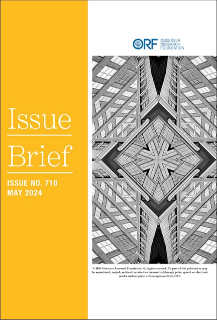
Medical examination of rape victims is one of the most important aspects of adjudication of rape cases in India; however, such examination not only proves to be inhumane and unscientific but also highlights the response of the healthcare system towards rape victims. This piece is an attempt to delve into the prevalence of degrading practices such as the two-finger test and why such medical examination of rape victims is problematic.
Medical evidence in rape cases serves as clear proof of the commission of the offence, which helps in determining the guilt of the accused; thus, the response and treatment by health professionals becomes extremely important in this regard. A 2017 report “
Everyone blames me: Barriers to justice and support services for sexual assault survivors in India,” shares various instances where girls and women during their medical examination were questioned on the basis of their sexual history; it also contained various anecdotes that reflect the trauma the victims undergo and how the healthcare professionals respond. It revealed how the whole concept of consent is blurred and barely any psychological counselling is provided to the victims.
A UN inter-agency statement also not only confirms the long-standing practice of virginity tests but also reflects its various physical and psychological consequences on the victims.
Problematic medical procedures
While the “two finger” test was banned by the Supreme Court in 2013, it still remains prevalent. The two-finger test was performed in more than 114 rape cases in
Rajasthan, and testimonies from rape trials in
Lucknow, Uttar Pradesh, also confirm that the test is still being practiced. Recently, the Madras High Court, in the case of
Rajiv Gandhi v The State on 21 April, 2022 questioned why the test is still in use and ordered the Tamil Nadu government to abolish the two-finger test citing how the ordeal was humiliating and invasive for victims. Shockingly, an
IAF officer who was raped during her training period also alleged that she was forced to go through the two-finger test. What becomes more problematic is that the test becomes a guiding factor in deciding the guilt of the accused.
Jan Sahas, in a study of
200 rape trials, found out that in 80 percent of the cases, the virginity test is the deciding factor. A
UN inter-agency statement also not only confirms the long-standing practice of virginity tests but also reflects its various physical and psychological consequences on the victims.
According to the report, “
Sexual Violence in South Asia”, the virginity test is still rampant in countries like India, Bangladesh, Sri Lanka, and Nepal. The notion of ‘honour and impure character’ is attached to women's past sexual histories. In almost all these countries, the sexual history of the rape victim is used in judicial reasoning to determine the “immoral” character of the victims. The reports also discuss the virginity test as one of the deterrent factors for the extremely low conviction rate of rape cases, which is as low as
3 percent in Bangladesh.
Improper implementation of existing guidelines
The Ministry of Health and Family Welfare (MoHFW) 2014 issued specific
guidelines for medico-legal care for survivors of sexual violence after the UN Women and UN Population Fund had issued a rulebook titled “
Healthcare for Women Subjected to Intimate Partner Violence or Sexual Violence”, which also aimed to abolish the two-finger test, citing it as unscientific and barbaric. These guidelines offer empirical medical data and procedures that help dispel widespread beliefs and humiliating practices around rape that have been supported by conventional medico-legal procedures.
The interagency statement by UN-WHO also looks into how victims are re-victimised during the medical examination and how the examination encroaches upon the privacy and physical integrity of the victims.
It directs medical professionals to subjectify their examination according to the testimony given by the victim. These guidelines help doctors to observe changes after the rape, reducing the vacuum created due to lack of evidence, instead of determining whether the rape happened or not.
However, most states do not follow these guidelines and use colloquial procedures to conduct medical examinations. For example, Rajasthan still conducts virginity tests. Only
nine states follow these guidelines, and even in cities like Mumbai, most doctors are unaware of these guidelines.
Rape myths and stereotypes: A sociological perspective
While there is no doubt over the unscientific nature of the virginity test, it’s extremely prudent to bring to light the consequences and sociological disbelief perpetuated by the two-finger test. It generalises the stereotypes associated with sexually active women and creates unrealistic ideas of how a victim should behave and how girls habituated to sex are of ‘bad’ and ‘loose’ characters. In a particular case, the
Supreme Court went to the extent of victim blaming, stating that because she was “used to” sexual intercourse, she was a women of ‘easy virtues’. The interagency statement by
UN-WHO also looks into how victims are re-victimised during the medical examination and how the examination encroaches upon the privacy and physical integrity of the victims. The test also perpetuates the myth of the prevalence of injuries on the victim's body and blurs the lines of the victim's consent.
It has also been observed that women who take this test run a higher chance of developing a variety of psychological conditions as a result. Loss of self-esteem, despair, guilt, panic, anxiety, severe anxiety, feelings of disgust, and dysfunctional sex life are among the known negative effects of this test. Such psychological damage has been backed by
several studies.
According to a study performed in Turkey as far back as 1998, 93 percent of participants agreed that the two-finger test creates psychological trauma and 60 percent said that it caused self-esteem loss.
Archaic medical textbooks
Flavia Agnes, a social activist and lawyer, criticised the blatant anti-women statements in medical books and how these textbooks miserably fail to “take into account the recent trends in medico-legal aspects of rape”. She had also suggested to drop the term ‘two-finger’ test and use a more scientific term for it and delink the moral assumptions attached with the test. It is also important to throw some light on the archaic and misogynistic medical education and training imparted to doctors as seen, for instance, in both Parikh’s textbook on medical jurisprudence and Prabhudas Modi’s book. Both emphasise on how women often falsify the claims of rape and perpetuate a negative perception towards the victims.
The apex court highlighted that experiences of marital rape are often buried because of past sexual history of the victim and the concept of consent is blurred in the context of marriage leading to systematic sexual violence.
Another such instance, a book called, “
A textbook of Medical Jurisprudence and Toxicology” still in its 2011 edition, justifies the two-finger test and its scientific evidence as an intact hymen reflects the character of the victim. These textbooks attempt to blur the lines around sexual consent, perpetuating ideas that some women have consensual sex and then make false claims of rape; that the absence of any injuries on the body of the victims amounts to consent, etc.
Recommendations
It’s extremely important for the legal system to bust such medical stereotypes and myths through judgments. Recently, on 29 September, 2022 the Supreme Court in a historic
judgement recognised marital rape and included non-consensual sexual intercourse between husband and wife under ‘rape’. The apex court highlighted that experiences of marital rape are often buried because of past sexual history of the victim and the concept of consent is blurred in the context of marriage leading to systematic sexual violence. The judgement also reflected upon how for a very long time sexual gender-based violence within the institution of family and ‘lived experiences of women
’ have been ignored
.
In collecting medical evidence, the counselling of rape victims should be prioritised as dictated in the 2014 guidelines. It is also important that awareness regarding pregnancy, sexually transmitted diseases, contraception, and risks of HIV should be informed to rape victims during or after the examination itself. Medical administration in local public health system also needs requisite attention. The government should make sure that there exists an adequate number of sexual assault forensic evidence (SAFE) kits within hospitals, which otherwise leads to the conventional form of evidence collection.
Another important area to work upon is to provide safe abortions to rape victims, the upper limit has already been increased with the amendment in the
Medical Termination Pregnancy (Amendment) Act 2021, however,
safe abortions for rape victims are still a distant dream. Thus, it’s important to create a victim-centric ecosystem, which is sensitive towards the needs and plight of rape victims. A more accountable system needs to be constructed from registration of FIRs and medical examination to trials in court rooms. The present rape adjudication and criminal justice system needs improvement because it is definitely failing to provide adequate services to rape victims.
The views expressed above belong to the author(s). ORF research and analyses now available on Telegram! Click here to access our curated content — blogs, longforms and interviews.



 Medical examination of rape victims is one of the most important aspects of adjudication of rape cases in India; however, such examination not only proves to be inhumane and unscientific but also highlights the response of the healthcare system towards rape victims. This piece is an attempt to delve into the prevalence of degrading practices such as the two-finger test and why such medical examination of rape victims is problematic.
Medical evidence in rape cases serves as clear proof of the commission of the offence, which helps in determining the guilt of the accused; thus, the response and treatment by health professionals becomes extremely important in this regard. A 2017 report “
Medical examination of rape victims is one of the most important aspects of adjudication of rape cases in India; however, such examination not only proves to be inhumane and unscientific but also highlights the response of the healthcare system towards rape victims. This piece is an attempt to delve into the prevalence of degrading practices such as the two-finger test and why such medical examination of rape victims is problematic.
Medical evidence in rape cases serves as clear proof of the commission of the offence, which helps in determining the guilt of the accused; thus, the response and treatment by health professionals becomes extremely important in this regard. A 2017 report “ PREV
PREV

